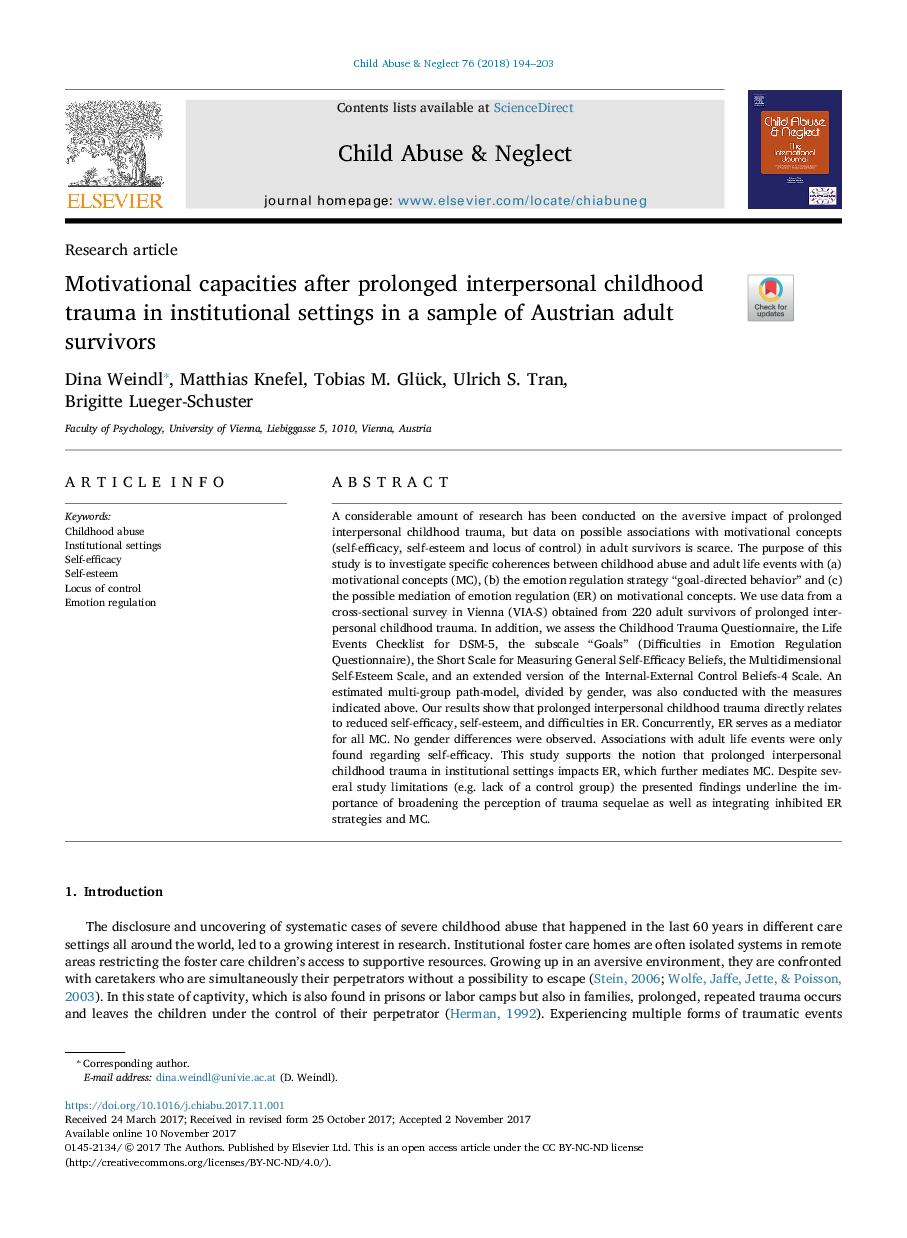ترجمه فارسی عنوان مقاله
ظرفیت های انگیزشی پس از درگیری های طولانی مدت در میان کودکان خردسال در محیط های سازمانی در نمونه ای از بازماندگان بزرگسال اتریش
عنوان انگلیسی
Motivational capacities after prolonged interpersonal childhood trauma in institutional settings in a sample of Austrian adult survivors
| کد مقاله | سال انتشار | تعداد صفحات مقاله انگلیسی |
|---|---|---|
| 128107 | 2018 | 10 صفحه PDF |
منبع

Publisher : Elsevier - Science Direct (الزویر - ساینس دایرکت)
Journal : Child Abuse & Neglect, Volume 76, February 2018, Pages 194-203

